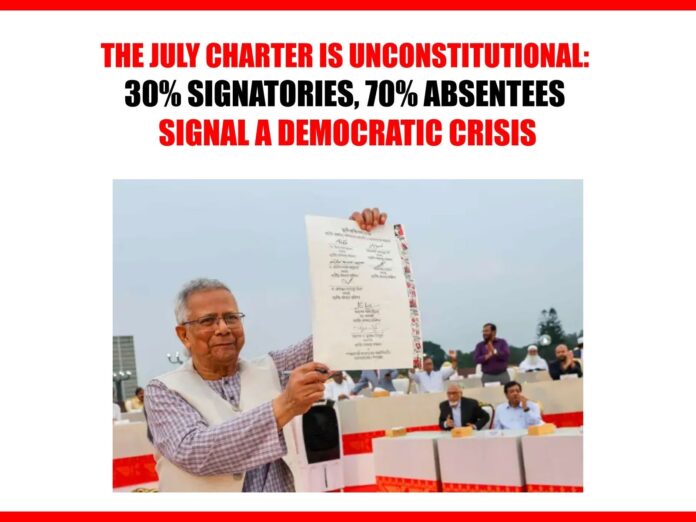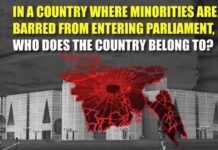Only 30% of the country’s political parties participated in the recent signing ceremony of the so-called July Charter. The absence of the remaining 70% has immediately sparked controversy and clearly reflected a growing public distrust toward the constitution and the political process.
According to the July Charter, it is described as a new document of political consensus. However, its legal foundation and implementation process remain unclear. Observers believe that to make the charter effective, approval from the constitution and parliament is essential; mere signatures or decrees cannot make it compatible with the country’s legal framework.
During the signing process, 18 registered political parties were seen to have signed the charter. However, some parties expressed “notes of dissent” or disagreement. Notably, the NCP, CPB, and several other parties refused to sign. In addition, a few unregistered political groups also signed the document. As a result, the idea of political consensus remains only partially realized.
Analysts note that differences of opinion among political parties are natural. Each party has its own ideology, outlook, and development strategy for the country. If all parties were to agree completely, the very need for multiple political entities would come into question. Therefore, political disagreement should be viewed as a normal and healthy component of democracy.
Meanwhile, the inclusion of new principles and proposed constitutional amendments in the charter has raised questions. Any modification or addition to the fundamental principles of the constitution must go through a democratic process and receive parliamentary approval. A declaration or ordinance issued solely by an interim government is not sufficient. Even if an ordinance is issued, it remains valid only for a limited period and may automatically lapse once a new parliament convenes.
The July Charter, therefore, is not merely a collection of political signatures—it reflects both legal ambiguity and political controversy, as well as public mistrust in the democratic process. To preserve the transparency of the country’s political and legal structures, it is now crucial to take proper, transparent, and parliamentary-approved actions. Otherwise, the nation’s democratic process and constitutional stability could be seriously jeopardized.




